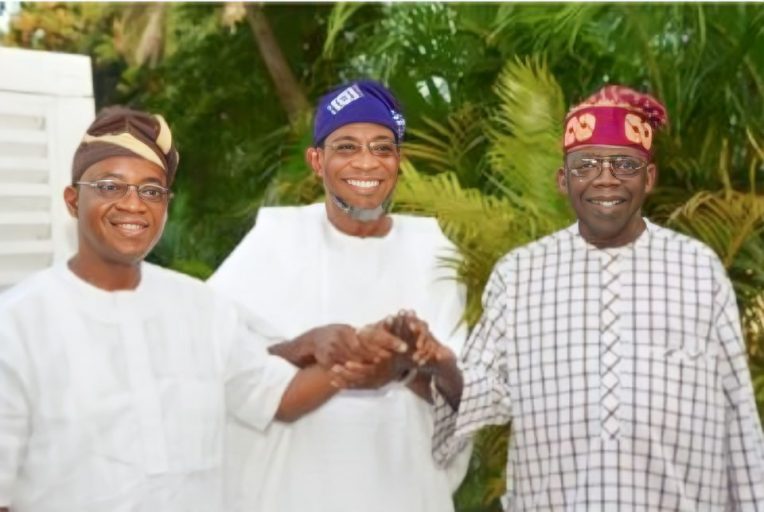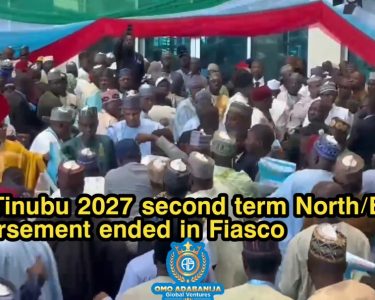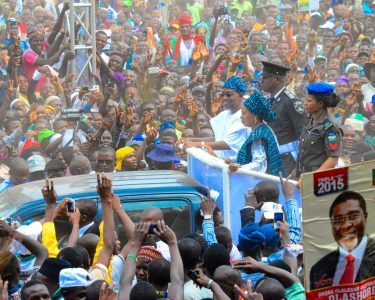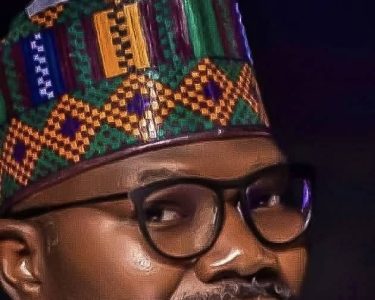Former Osun State Governor and current Minister of Marine and Blue Economy, Gboyega Oyetola, recently declared that he will “return APC into power in Osun.” The statement, though headline-grabbing, is largely seen by observers as politically tone-deaf and disconnected from the current realities in the state.
In 2022, Osun voters rejected Oyetola at the polls not out of confusion or manipulation, but from lived frustration with a government that many described as aloof, uninspiring, and technocratic to a fault. The electorate’s decision was not impulsive it was a referendum on leadership failure and unmet expectations.
Oyetola’s administration was marked by prolonged silence in the face of public agitation, slow infrastructural response, and a disconnection from the grassroots that once formed the bedrock of the APC in Osun. His style of governance alienated civil servants, youth groups, party elders, and even segments of his own party structure.
Yet, amid this political hangover, Oyetola now seeks to return to power a bold move, but one many describe as more delusional than strategic.
Aregbesola’s Shadow Looms Large
If the APC has any legacy to speak of in Osun, it was largely built under Ogbeni Rauf Aregbesola, Oyetola’s predecessor and erstwhile ally. Aregbesola’s tenure was far from perfect, but it was rich in strategic depth, ideological clarity, and grassroots engagement the very ingredients that have been missing in Oyetola’s political cookbook.
Below are key contrasts between the two leaders one a builder, the other a caretaker:
The Sagacity of Rauf Aregbesola: A Leadership Study
- Grassroots Mobilization
Aregbesola built a mass political movement through his Oranmiyan platform. He engaged directly with communities and was known to walk the streets and speak with residents, creating a bond that translated into political loyalty.
- Infrastructure and Visibility
Unlike the passive governance style of Oyetola, Aregbesola implemented large-scale infrastructure projects — from schools and roads to urban renewal projects that made governance tangible and visible.
- Bold Reforms
From the OYES youth empowerment scheme to education restructuring, Aregbesola was not afraid to take risks. His leadership was assertive and reform-driven, even in the face of controversy.
- Clear Ideology
Aregbesola was a staunch progressive, rooted in the Awoist philosophy of social welfare and mass empowerment. His policies had a consistent pro-poor and pro-development tilt.
- Party Above Self
Even at personal political cost, Aregbesola remained loyal to the APC structure. Oyetola, in contrast, oversaw a period of deep internal conflict that fractured the party across wards and local governments.
A Party in Disrepair
Under Oyetola, APC in Osun became a party of cold rooms and quiet corridors. Local chapters were weakened, internal democracy was eroded, and several key stakeholders were sidelined or silenced. The result? A party disconnected from the people it once galvanized.
It is this broken party that Oyetola now hopes to revive not with new vision or coalition-building, but with declarations made from Abuja. But Osun is no longer swayed by distant rhetoric. The electorate is younger, more politically conscious, and unwilling to return to what they deliberately walked away from.
Conclusion: Osun Has Moved Forward
Power in Osun is no longer inherited it is earned. Gboyega Oyetola’s record was tested at the ballot box, and the people gave their verdict. His campaign to return the APC to power overlooks one key truth: Osun has evolved.
The state deserves dynamic leadership rooted in engagement, vision, and credibility not a rebranded version of what has already been rejected.
For now, Oyetola’s ambition to “return APC into power” reads more like political nostalgia than a feasible strategy.




